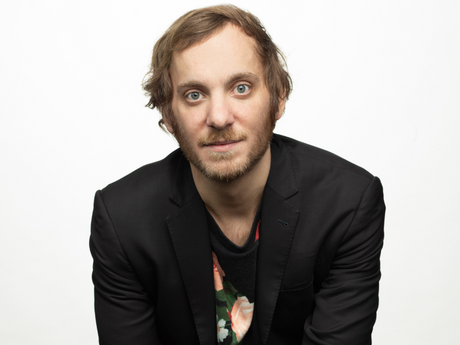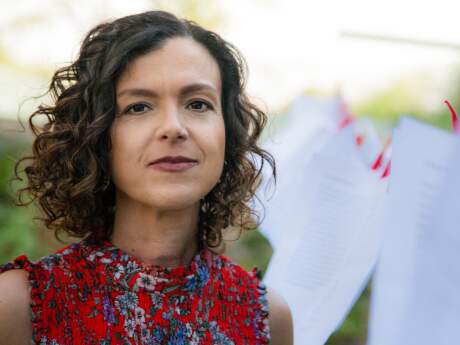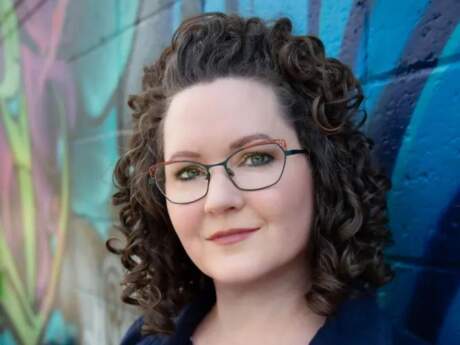In Their Own Words
Soren Stockman on “To Be Born”

When I was young I was really
an old man. I remember it, delicate
and spacious: aware I would
become more honest, feel natural,
knowing half of love
is need. A serious young man,
I had trouble saying yes
to the bright, clear days. With what
pitiful ease we could change –
our lives out, something else in
– but the tissue holds memory
we don’t quite know. One
night, like a boxer dropping
his gloves, I answered
every question immediately.
Slowly we laughed more,
we were hysterical at night
and morning blew the doors open.
I ate a radish, never contracted
chicken pox, my singing improved
and women never stopped looking.
Then my friends began to die.
They passed through the beautiful old
maples I watch from my window.
What a blessing to love the world
and then finally be born.
Reprinted from Elephant (Four Way Books, 2022) with the permission of the poet.
"To Be Born" illustrates the childhood experience of inhabiting a mind unencumbered by disguises. The poem opens with a retrospective gaze and acknowledges the difficulty of trying to access our pre-self-conscious minds. Halfway through the poem, at "One / night," the mind begins to impose upon itself. There is great relief and power in speaking back to a world we have only listened to. But there is also great loss, in that we can no longer perceive beyond our constructed selves. Life moves more quickly due to this narrowing. Time, filled, inevitably accelerates. Experience, rather than imagination, becomes the engine of understanding.
As children, we are porous to the emotional resonance of our circumstances. Before we develop and receive a definition of ourselves, the ego cannot participate in our understanding of things. We are born listeners, free from relating ourselves to what we perceive. A child's imagination is feral and roaming, inhabiting any amorphous or inconvenient point of view that provides meaning. As adults, we exclude uncomfortable realities from our conscious and unconscious wishes. But our intuition as children can't account for comfort; we are still establishing what comfort means, so we accept conflicting realities.
The ends of our lives, should we be lucky enough to experience them as older people, may well return to us the intuition that results from a perspective beyond our own experience. What sadness that we cannot experience our entire lives within the ego-less intuition in which the world is only itself, and not what we want it to be. What beauty to begin life knowing no other way, and to finish our lives knowing it is the best way.
As I've grown older, I have always felt a child version of myself lingering inside me. I have always tried to protect that child, for his sake and mine. As an artist, I find him essential. This wish, too, represents a step not toward any authentic or objective meaning, but rather toward my own comfort. There is no escaping the ego once it forms, and there is no safe harbor from the disguises it showers on what we see and feel. But the child I protect has no loyalty to those disguises and thinks they are funny and sad (contradictions like these, upon which the world is built, present no false issue for the child mind).
"To Be Born" imagines we're all riding an enormous merry-go-round and now and then we each hop off to frolic briefly in a field before hopping back onto our painted horses to continue the game. We live alongside whoever decides to jump at the same time. Next time it could be a different cast of characters, though maybe some of us stay attached and keep an eye on one another.
Elephant is a collection concerned with this intimacy: who do we ride our horses alongside, and who do we dance with in the field? What stays with us, sustaining us between dances? "To Be Born," is written largely in the past tense as retrospection, but the final sentence looks forward. The poem lives in the eternal beforehand and forever afterward, in the glance beyond the field back at the merry-go-round as the last song winds down.



